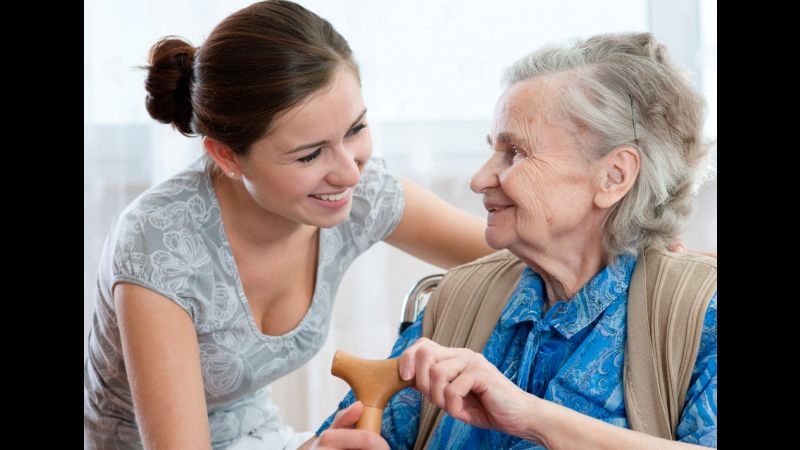If you have a loved one who is battling Alzheimer’s Disease, you know how emotionally challenging it can be to provide care on a day-to-day basis. Seeing to it that your family member gets the very best care and attention requires compassion, patience and personal fortitude. Not only that, but it requires careful planning. The safety and security of your loved one is a real and constant concern.
In addition to the mental handicaps that come with Alzheimer’s, patients may face physical challenges. Your job is to ease the burden caused by these challenges in your home and anywhere else that you spend time with your loved one. Indeed, the National Institute on Aging (NIA) advises you to take room-by-room steps to create an environment that is at once comfortable and practical for somebody dealing with the symptoms of Alzheimer’s.
Safety Concerns
The more commonly recognized symptoms of Alzheimer’s include memory loss and cognitive impairment. This can include confusion, disorientation and difficulty making sound judgments or decisions. As a result, there are many ways that an individual suffering from Alzheimer’s could be challenged by the conditions of his or her own home.
As the primary caregiver, it falls upon you to manage these challenges as best as possible. According to the NIA, this should include the following accommodations:
Prevention:
One of the biggest challenges of providing care for somebody with Alzheimer’s is the unpredictable nature of the condition. There may be little warning before an Alzheimer’s sufferer engages in a behavior that might present danger. For instance, your loved one may forget having turned on the stove or leaving a second floor window open. The NIA advises doing your best to anticipate such memory lapses by getting safety locks for the stove, windows or any other part of the home that could present a safety concern. New Lifestyles advises a complete survey of your home to ensure that all risk factors are considered and addressed.
Environmental Adaptation:
Because of the memory challenges that characterize Alzheimer’s, it is extremely difficult to promote a pattern of safer behavior. Alzheimer’s sufferers will struggle to adapt behavioral changes. Instead, you should seek to adapt the environment to protect your loved one from potential accidents. According to WebMD, such adaptations may include additional railings, working door locks, well-maintained stairs or ramps and removal of any unnecessary clutter, especially near entrances and exits.
Minimization of Danger:
The NIA also calls for you to remove all potential hazards from your loved one’s living space. This should include the secure placement of sharp objects such as knives and scissors or flammable items such as matches or lighters. Also be sure that you have ways of preventing your loved from simply wandering off when unattended. This might require a door alarm or video monitor for times when you can’t be home. In general, try to be conscientious of the everyday household items and situations that could become dangerous if not managed properly.
Finding Balance
One of the greatest difficulties you will face is finding balance between providing safety and maintaining the freedom and mobility of your loved one. Quality of life is important so be sure to consider the accessibility of light switches, sofas and the television. Find ways of controlling your environment while still helping your loved one engage in the activities that he or she enjoys.

